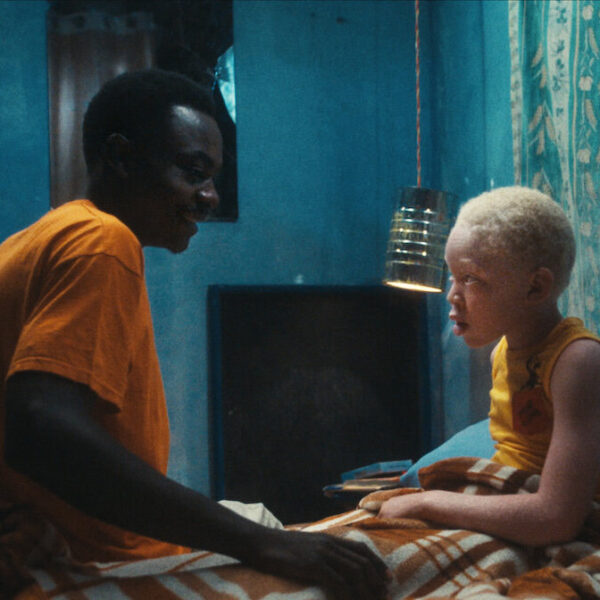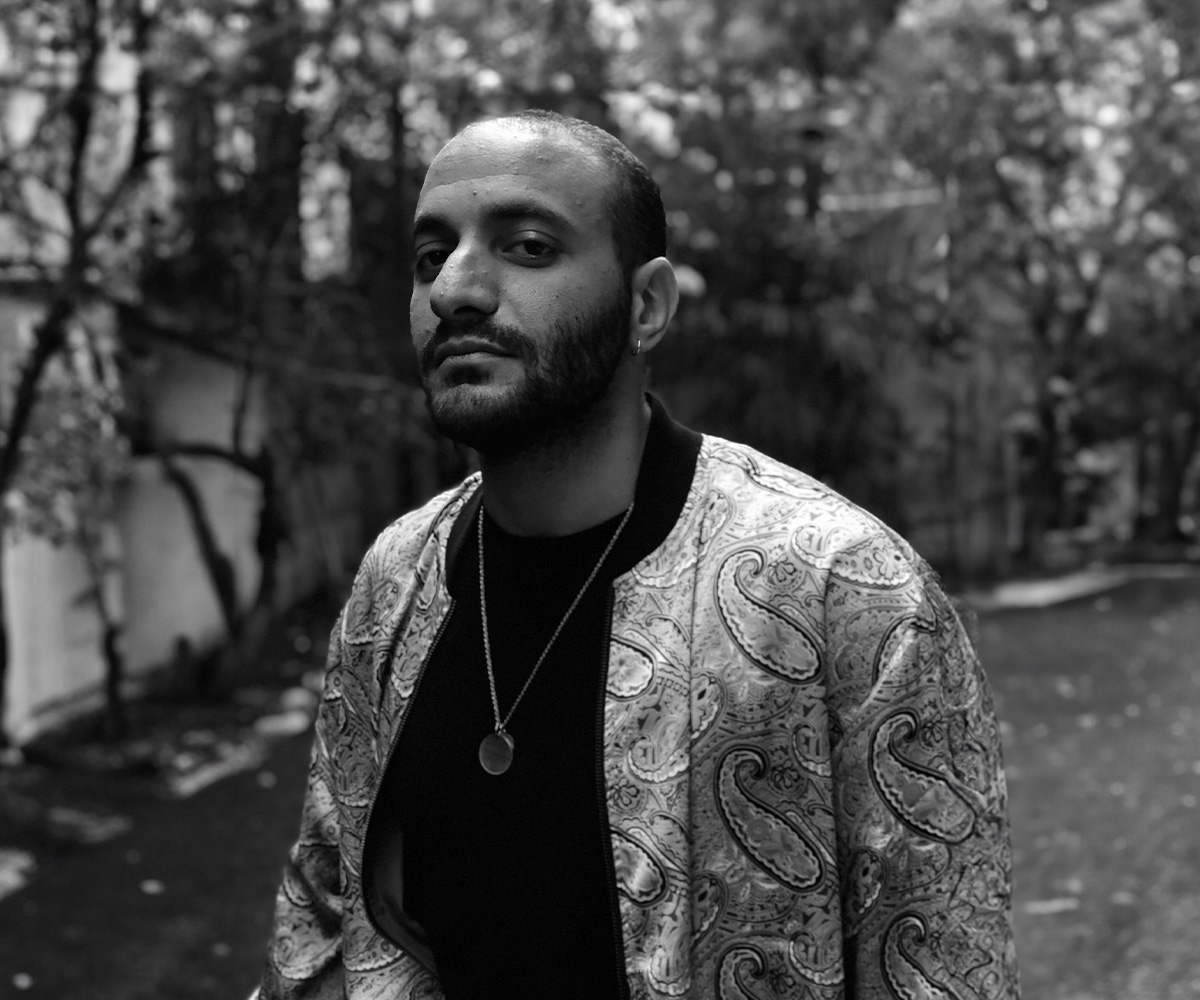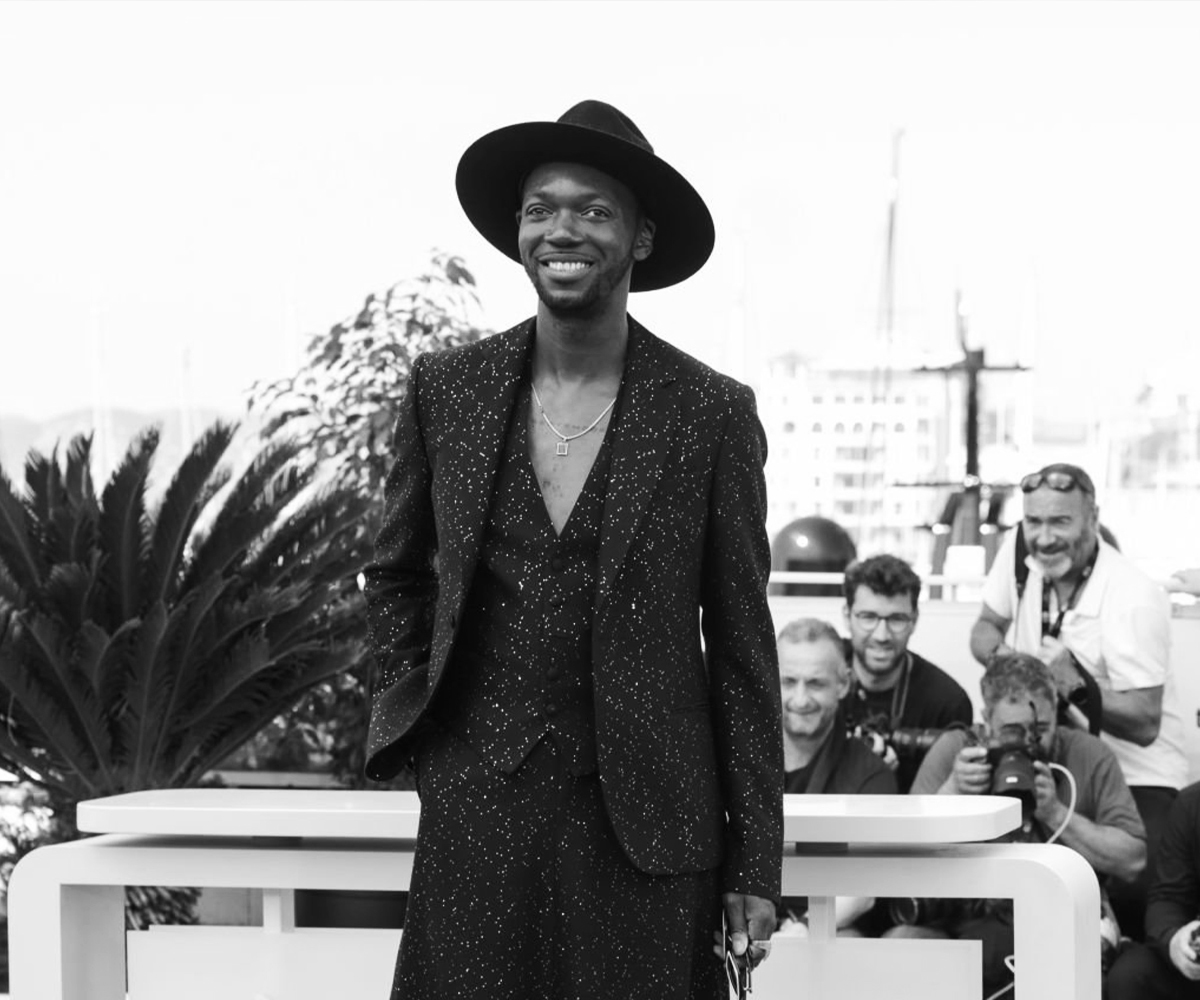
Photo credit: Netflix
Film
The Stars of Netflix’s ‘Can You See Us?’ Put Zambia on the Map

Photo credit: Netflix
The film explores what it’s like for people living with albinism in Zambia, inspired by true events.
By Fancy Goodman
October 2023
Netflix’s first Zambian film, Can You See Us?, premiered last month and has already stolen viewers’ hearts. Directed by Kenny Mumba and inspired by the life of Zambian singer John Chiti, the film follows Joseph, a boy grappling with albinism.
The role of Joseph is played by Thabo Kaamba, a young actress with albinism. “This was an exciting and weird role,” Kaamba tells STATEMENT about playing a boy. “I had to cut my hair, wear male clothes, and learn to walk like a boy. I picked up behaviors from the boys I play with in my neighborhood, and also from my brother,” she adds. Can You See Us? showcases the lived experience of people living with albinism and the stigma they face in Zambia, as well as other [African] countries.
In the film, people living with albinism aren’t considered human, and Joseph is frequently called “Mwabi,” a Nyangi word that translates to ghost, which Kaamba says is what people often think of her.
“Some people think I’m a ghost,” she says. “Even though I haven’t faced most of what Joseph went through, like being rejected by his father and bullied by his neighbors, I am called names whenever I walk in a new environment.”
STATEMENT sat down with Ruth Jule, the actor who plays Chama, Kondwani Elliott Zulu, who plays Martin, and Thabo Kaamba, as they spoke about their experiences working on the film, and becoming a fan favorite.
This interview has been edited for length and clarity.
STATEMENT: What was it like taking on your different roles?
Ruth Jule: It was a rollercoaster and was a bit difficult, mainly because I’m not a mother. However, the producer, Yasmine, ran me through what it was like being one and how protective mothers can be. That guidance made things easy for me.
Kondwani Elliott: It was amazing. The fact that I knew I was telling a very important story, coupled with being a father to someone while spreading the awareness of albinism, was a huge responsibility, but it was good.
I get that, so how did you both — Ruth and Kondwani — prepare for this role, seeing as you were parents to a child with albinism?
Ruth Jule: I had a lot of preparation with the producer, Yasmine. She is a mother, so she taught me how to be one and how protective they can be. That guidance made everything easy for me.
Kondwani Elliott: I prepared with the help of the writers, director, and [the executive producer] Mr Thompson. When you sit down with them to understand what kind of father Martin is and why he has accepted to take in this child, you get the answers and are good to go. It was challenging because it required so much besides just being an actor or a father to someone. It required getting into the world of albinism and asking how you would react if you found yourself in the situation. We had an amazing cast, and they made it easy for me to do the job.
The film follows the story of real-life people. Did you get to interact with these people to better understand the characters you were playing?
Thabo: Yes, I did. We [John Chiti and I] interacted, and he told me some of the things he went through, which I never knew about.
Ruth Jule: No, I never got a chance to do that.
Kondwani Elliott: I did not. However, John Chiti was on set one day, and I had a little chat with him. Then, he asked if I was the person playing his father. When I responded, he said, “I hope you do a good job.”
Okay, so what was it like playing these people? Was there any pressure to be great at portraying them?
Kondwani Elliott: It’s tough playing real people. It’s a lot of pressure because you don’t want to lie. I have never met the father of John Chiti, but I had to play him and get into his world. It wasn’t easy, but it was worth it. When I had conversations with the writers, they gave me hints about the kind of person the guy was, what he used to do, and what he liked.
Ruth Jule: I didn’t really feel pressure, but I told myself I needed to do the best I could with the script and ensure that the viewers resonated with me as Joseph’s mum. My job was to play it as perfectly as I could.
Thabo: Yes, there was. Playing another person is challenging because we are all different. Also, my character is a man, so that was something else.
So far, what do you think about the reception since the film premiered on Netflix?
Kondwani Elliott: It’s really good, and I personally didn’t expect that. I knew it was a good film that would travel well, but I didn’t expect people to get so invested as to make TikTok videos about it. It’s a big deal, especially because it is the first Zambian feature film on Netflix. The large reception it has had is truly amazing.
Ruth Jule: I think it is something huge, and it is putting Zambia on the map. The world now knows that Zambia has a lot of undiluted talent. It gives [the world] a chance to sneak peek into Zambia’s movie industry and how we are good storytellers.
Thabo: It’s exciting and overwhelming. Also, I hope people will learn to treat others equally regardless of appearance.
I hope the film creates more opportunities and conversations. Now, I’m curious to know what working with Thabo as the main character was like?
Kondwani Elliott: She’s amazing, intelligent and out of this world. My biggest prayer now is that she gets more opportunities out of this. I remember her correcting me about certain lines because she knew the entire script. I came to the rehearsals and skipped some lines on set and was trying to be a genius, and she was like “Uh uh, daddy, go back”. She is an amazing actress.
Ruth Jule: It was easy working with her. She shared some of her challenges as a person with albinism, which made me tune into the character of a mother trying to protect her. She is excellent.
What’s one thing being part of this production taught you about albinism?
Kondwani Elliott: I knew about albinism but I wasn’t so educated about it, but my mother did a good job because I was raised to see them as people with different skin tones. I remember the first time I read the script and was like, “Wait a minute! Somebody out there thinks cutting an albino’s arm off would make them money?” It was a shock, and it educated me so much about how our brothers and sisters with albinism are living, and I now know a lot about what that’s like.
Ruth Jule: I knew they face challenges; I just didn’t know the severity and depth of those challenges. This movie opened my mind to the social and psychological difficulties they are faced with. I now know of people hunting them down for their arms and legs and understand how hard it is for them in society. We don’t see enough of people living with albinism in parliament and other positions of power. However, now, I know how they can be advocated for, going forward.
Can You See Us? is currently on Netflix.


